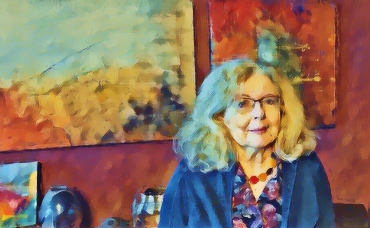Disability is part of being human. Almost all of us will experience disability at some point in our lives. Disabilities have long been included in haiku, from the early Japanese haiku masters to today. British writer and poet Stella Pierides continues in that tradition.
I’ve never met Stella in person, but she and I have worked on projects for The Haiku Foundation for almost a decade. I’ve always admired the calmness and rigor she brings to issues that come our way.
Stella was diagnosed with Parkinson’s in 2017. Since then, she has championed the benefits of haiku practice for those with this illness. Here are two of her most recent articles on this topic.
“The aim of the haiku poet is to capture the essence of a moment” | Parkinson’s Life
Parkinson’s Toolbox: The Case for Haiku | (JUXTA, pp. 37-61)
Also on the theme of haiku and disability, see Carol Purington’s Quiet Optimism, Michael Dylan Welch’s tribute to a beloved haiku and tanka poet who was bedridden by polio her entire adult life.

